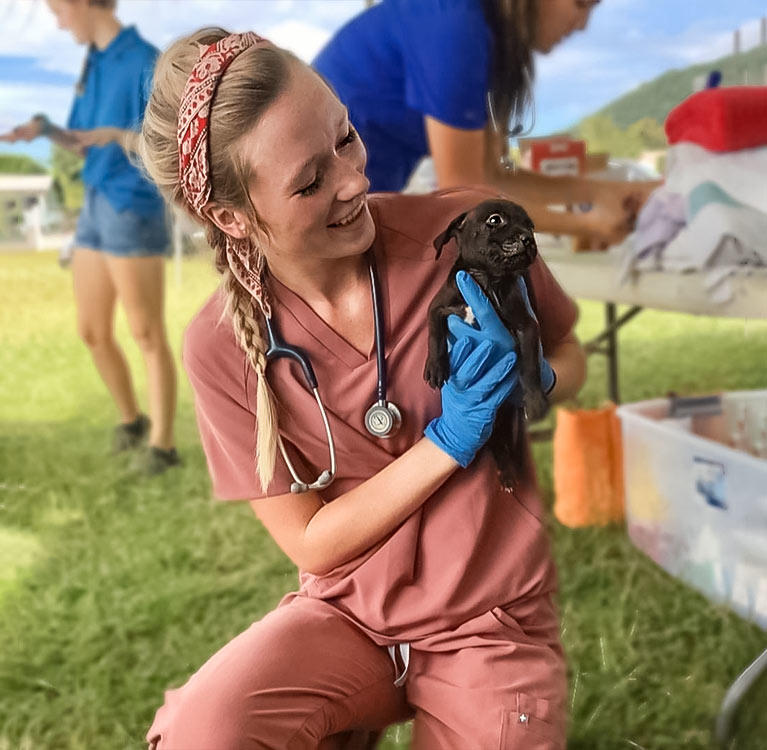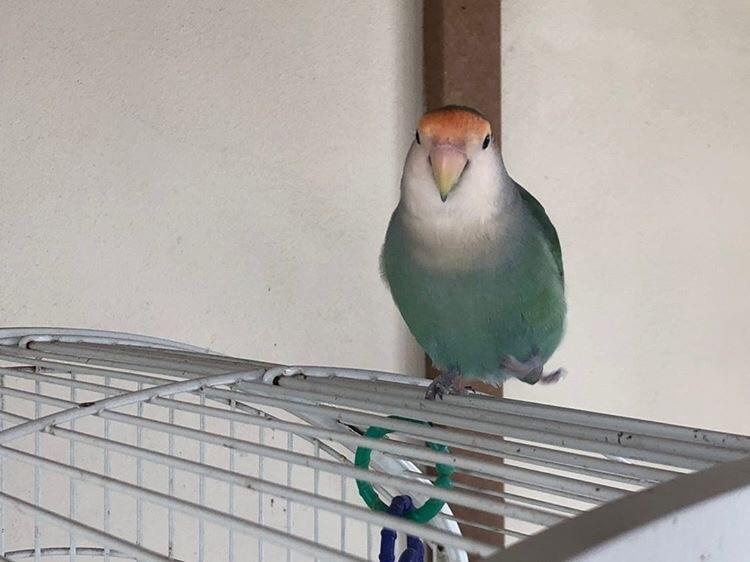Students who want to go to an accredited veterinary school such as Ross University School of Veterinary Medicine (Ross Vet)* should become well acquainted with the Veterinary Medical College Application Service (VMCAS). Created by the American Association of Veterinary Medical Colleges (AAVMC), VMCAS is a common application service that allows students to submit just one primary application, regardless of the number of veterinary schools to which they apply. Nearly all veterinary schools in the United States use VMCAS as the primary application method for entering classes. VMCAS is also used by veterinary schools in other countries, including Ross Vet, which is located in the Caribbean island nation of St. Kitts and Nevis.
VMCAS has many parts: among them background information, fees, transcripts, and a personal essay. But here we’ll concentrate on just one ingredient: the all-important letters of recommendation. Applicants are required to request between three and six such recommendations from veterinarians, professors, or other professionals. But how do you get them?
You might not think your vet school recommendation letters need much thought. After all, you can’t control someone else’s writing. But you should actually approach each VMCAS letter of recommendation like a project, with a beginning, middle, and end. Success depends on planning, building a relationship, and providing your recommenders with the information they need to write a standout letter of recommendation for vet school.
TIPS FOR OBTAINING VET SCHOOL RECOMMENDATION LETTERS
Read our top five tips for getting good results from your recommenders on their VMCAS letter of recommendation.
1. Preparation is key
It’s important to start the process early. You might think that getting your vet school recommendation letters is just a matter of asking, but getting the best results requires time. Start well ahead of your application deadline.
Remember that professors in particular will have a number of vet school recommendation letters to write, so giving them enough time to put thought into your VMCAS letter of recommendation is critical. Approaching them early also helps establish an orderly process, so you can be sure they have the information they need to write a strong veterinary letter of recommendation.
2. Choose strategically
Professors and veterinarians provide the best VMCAS letters of recommendation. The authors should know you well and should be able to evaluate your prospects for vet school. They should be able to describe your work ethic and passion, having supervised your work in some respect.
The better the letter writer knows you, the larger impact your letter may have. Someone who has known you for only two weeks might be impressed with you, but their knowledge may be rather superficial. Someone who has known you longer will have more credibility in describing your character and drive. They will write a more compelling letter of recommendation for vet school.
Your letter will also be stronger if you choose a writer who is established and has some seniority. For example, a letter from a department chair carries more weight than a letter from a teaching assistant. A letter from an established veterinarian is better than one from their assistant.
Letters from family friends, public officials, or similar “character” references will usually not help your case. You should not submit character references as vet school recommendation letters unless they are expressly requested by the vet school.
3. Make it personal
You want to give your writers all the help and background information they need to write an impressive veterinary letter of recommendation. They already know who you are, but don’t make them hunt for relevant details.
Provide them with your curriculum vitae (CV), transcript, and a draft of your personal statement. Make a brief appointment for a face-to-face meeting to ensure they have all your materials. Remind them that you are looking for a letter that speaks to your potential to thrive as a professional veterinarian. This personal touch helps prevent miscommunication, and it states clearly just how much is riding on the letter.
4. Logistics matter
Make sure your letter writers know how to upload your veterinary letter of recommendation to VMCAS. First, you enter the recommender’s email and other contact information into VMCAS. Then, your recommender will receive an email from the system inviting them to log in and submit.
Some recommenders get tripped up on this step because the email from VMCAS is sometimes filtered as spam. It’s wise to send the recommender a personal email a short time after you have submitted their info, to remind them to check their spam filter if they do not see the VMCAS email.
5. Follow-up for the win
If you see your letter writers regularly, you can occasionally ask about their progress. For some, it may be more appropriate to send a personal message by email. Obviously, you don’t want to bother busy people who are trying to help your career, so find the balance between reminding and pestering.
It helps to set a deadline for your recommenders, one that’s ahead of the required deadline (typically around September 15). This gives you time to check with them and make sure their letter was submitted. If they are running late, you can still get the letter of recommendation for vet school into VMCAS by the deadline.
GET STARTED WITH ROSS VET
Now that you’ve read our tips on VMCAS letters of recommendation, start planning who you want to write them and when you will need them. And don’t forget to check out the many other vet school requirements long before you start an application. Research Ross Vet’s Doctor of Veterinary Medicine (DVM) program as well as the admission requirements. When you’re ready, and you have all materials in place, get started on that VMCAS application. Or, if you prefer, you can apply for admission directly to Ross Vet, and let your passion for animal health lead you to a world of possibilities.
Related Resources:
- Tips for Preparing a Strong Vet School Application
- Request More Information About Ross Vet
- Vet School Admissions Requirements
*Ross University School of Veterinary Medicine's (RUSVM) Veterinary Clinic is accredited by the American Association for Accreditation of Laboratory Animal Care (AAALAC, www.aaalac.org) as a school. The accreditation focuses on animals used in teaching and research environments.
RUSVM received full accreditation on July 16, 2019, from AAALAC International, an organization that promotes the humane treatment of animals in science through voluntary accreditation and assessment programs.
Ross University School of Veterinary Medicine confers a Doctor of Veterinary Medicine (DVM) degree which is accredited by the American Veterinary Medical Association Council on Education (AVMA COE), 1931 N. Meacham Road, Suite 100, Schaumburg, IL 60173, Tel: 800.248.2862. For more information please visit https://www.avma.org/education/accreditation-veterinary-colleges.
The next comprehensive evaluation will occur in 2025.
AVMA COE Accreditation Resources
Accreditation Policies and Procedures of the AVMA Council on Education






